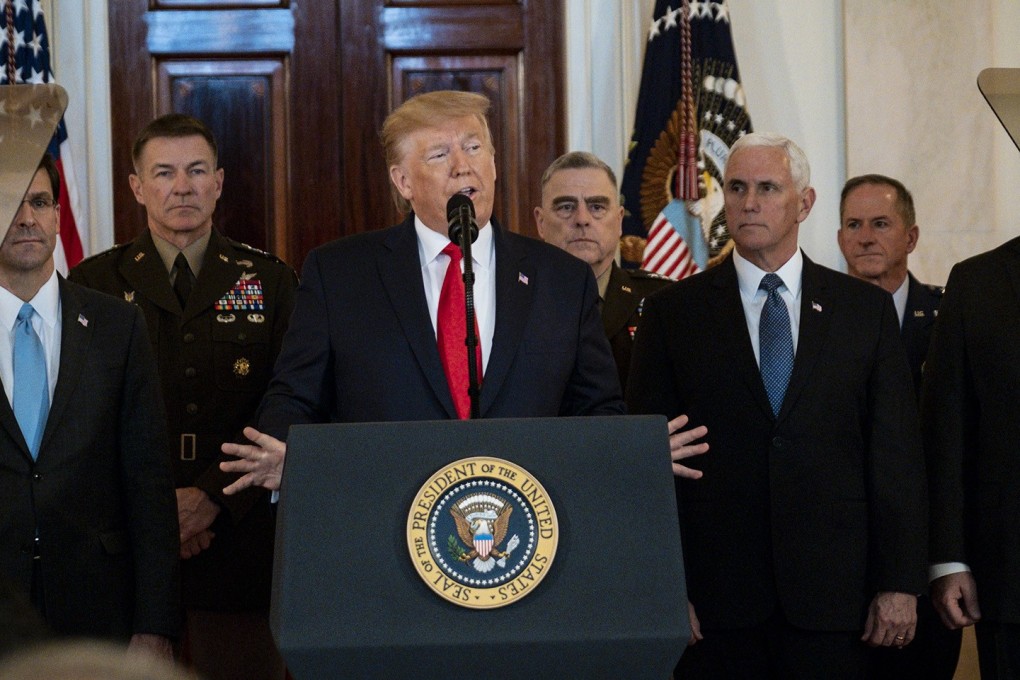Editorial | Diplomacy only way forward in Middle East
- The conditions that took the United States and Iran to the brink of war remain as dangerous as ever, and dialogue is needed to resolve region’s challenges

The threat of war between the United States and Iran has eased as quickly as it flared. As soon as President Donald Trump announced that his country would take no further military action against Tehran because missile strikes on American bases in Iraq had caused no casualties, the global sigh of relief was audible, most evident in the rebounding of stock markets.
Iranian leaders have tactfully added to the calm, Foreign Minister Mohammad Javad Zarif indicating on social media that proportionate measures had been taken “and concluded”. Conflict has been avoided, but the risks of another flare-up remain high.
Iran had promised to avenge the killing last week of its top military official, Qassem Soleimani, in a US drone attack near Baghdad airport. It was the most audacious of a series of tit-for-tat actions by the sides and a devastating response was anticipated.
But Tehran’s leaders calculated carefully; while the strikes against US targets was unthinkable a week ago, it was carried out in such a way as to give a warning and cause little damage. Trump has not been handed an excuse to retaliate and instead chosen a shrewd path of claiming victory while doing little more than tightening Iranian sanctions.
The risks of all-out war have receded. There is no evidence that the crash of a Ukrainian passenger plane shortly after take-off from Tehran’s airport on Wednesday, killing all 176 people on board, is linked, although investigations are continuing.

